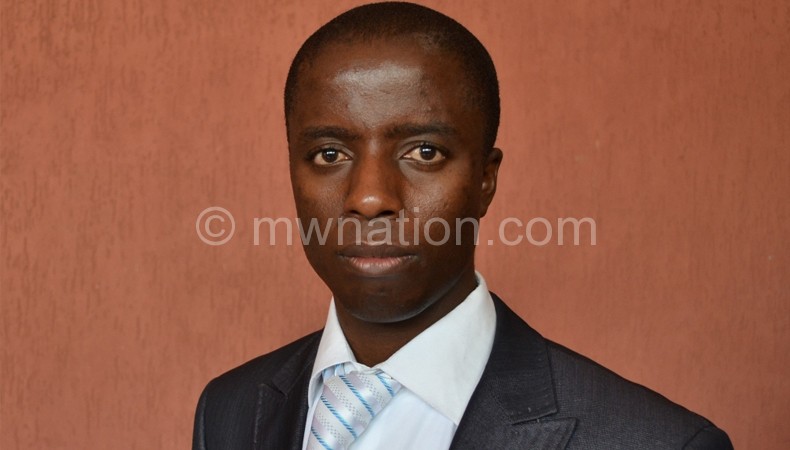MEC commissioners want 170% pay hike
- Push for chairperson to livein K750 000 house/month
- Proposed benefits almost at par with Cabinet ministers
Commissioners at the Malawi Electoral Commission (MEC) want a roughly 170 percent pay rise; a move analysts warn could spark similar public sector-wide salary hike demands that could further cripple government.

Weekend Nation analysis of the proposed changes show that, if implemented, the monthly wage bill for the commissioners alone will more than double to over K20 million from the current K9 million.
The proposals, coming a year after the commissioners’ perks were last adjusted, are contained in last month’s communication, seen by Weekend Nation, from the commissioners to the Public Appointments Committee (PAC) of Parliament which is mandated to determine the commissioners’ perks.
The proposal is pushing for an over K1.5 million jump in the commission chairperson’s monthly take-home package from the current K917 000 (totalled from honoraria, housing, hospitality, telephone and utilities allowances) to K2.4 million whereas that of other commissioners has been proposed at K1.9 from K730 500, representing an increase of 170 percent.
The proposed changes include a 150 percent jump in honoraria from K600 000 to K1.5 million for the chairperson and K475 000 to K1.2 million (153 percent increase) for the rest of the nine commissioners.
The commissioners are also proposing an increase in housing allowance from K200 000 to K750 000 and K160 000 to K600 000 for the chairperson and commissioners respectively. This represents a 275 percent hike in both cases.
University of Malawi’s Chancellor College political scientist Blessings Chinsinga and lawyer Justin Dzonzi have described the proposals as out of tune with the country’s economy, warning that passing them would have ripple effects on the already struggling economy.

be a token
MEC director of media and public relations Sangwani Mwafulirwa and two sources within PAC confirmed the commissioners’ proposals in separate interviews this week.
However, when contacted on Wednesday PAC chairperson Lingson Belekanyama said he was yet to see the proposals which are contained in a September 2015 communiqué forwarded to his committee.
He said: “That communication has not reached the chair yet. So I cannot comment at the moment, more especially considering that it is about some people’s salaries. I can only comment when the committee meets, this is a confidential matter.”
Other proposed changes
On other allowances, the commissioners are proposing a sitting allowance of K100 000 from K15 000 and hospitality allowance of K60 000 from K40 000 for the chairperson.
They further recommend that the chairperson’s domestic allowance be moved to K45 000 from K20 000; residential ground telephone of K35 000 from K12 000; utilities from K30 000 to K55 000; per diem from K40 000 to K80 000 per night with fuel going up by 250 litres from the current 500 litres.
The commissioners’ sitting allowance has been pegged at K90 000 from K10 000 while hospitality allowance is at K50 000 from K30 000.

The commissioners also want their domestic allowances to be increased from K18 000 to K35 000, residential ground telephone from K10 000 to K30 000, utilities from K25 000 to K40 000, per diem to be adjusted to K80 000 from K30 000 per night while fuel should be put at 500 litres from 300 litres.
If PAC implements the proposals, each of the nine commissioners will be carting home a monthly package of K1.9 million with the chairperson tucking away almost K2.5 million.
The packages exclude the revised fuel allocations for the chairperson and commissioners.
What the commissioners are seeking in honoraria is almost at par with the current monthly remuneration for Cabinet ministers and slightly below that of Vice-President President Saulos Chilima.
Cabinet ministers receive about K1.6 million while deputy ministers get K800 000 per month, excluding other allowances and benefits.
President Peter Mutharika’s tax-free monthly package which was adjusted upwards last year is K2.7 million while Chilima’s is pegged at about K1.8 million, translating into an annual pay of K32.4 million and K21.6 million respectively.
The commissioners’ proposed changes exclude other existing benefits such as medical cover (MASM- VIP scheme which also covers their spouse, up to four children and two dependents), one four-wheel drive vehicle and a loan of K10 million during their four-year term.

see proposal
The commissioners and chairperson also get K400 000 and K500 000, respectively, for furniture at the beginning of their term of office and $200 (about K116 000) and $250 (about K130 000) monthly as telephone allowances.
All the commissioners, including the chairperson, are also entitled to armed police guard, three private guards and burglar alarm system at their residences.
Currently, MEC has 10 commissioners including the chairperson who were appointed by former president Joyce Banda in 2012.
However, the commissioners have not made proposals on other things such as external travel allowances where they are already entitled to VIP (very important people) treatment with diplomatic passports and flying in business class.
When travelling on non-funded trips, the commissioners get $300 (about K174 000) per day plus $10 (K5 800) per day as telephone allowance while the chairperson receives $350 (K203 000) and $10 telephone allowance every day.
For a funded trip, both the chairperson and his commissioners get $200 plus $10 for telephone allowance daily.
In an interview on Wednesday, Mwafulirwa said the proposals were prepared by MEC for discussion purposes and that PAC would ultimately determine the commissioners’ remuneration.
According to Section 4 (2) of the Electoral Commission Act, commissioners’ remuneration may be increased at such intervals as PAC may determine.
Proposed changes draw fire
But Chinsinga said while the commissioners are justified to seek an increment in their benefits, the magnitude of their proposed changes were “out of tune”.
“You can’t have an increment that more than doubles your entitlement. I think that is obscene and unreasonable, especially given the current state of the economy.
“One would not expect such kind of proposals coming from a group that we trust as men and women of integrity,” said Chinsinga.
He warned PAC against approving the proposal, saying such a move would give a bad signal to other public employees considering President Mutharika’s recent pronouncement that government would not adjust salaries for public servants until the economy stabilises.
“Implementing this proposal would have considerable ripple effects on the economy,” he said.
Dzonzi, who is also executive director for Justice Link, wondered why the commissioners would make such a proposal when “the President publicly said the country was broke”.
“For a country that is going through a crisis, this is not the time to adjust salaries. In fact, if we were to borrow examples from countries that faced the 2008 financial crisis in Europe, they literally had to reduce the salaries in order for them to cope.
“Now, if there is a Malawian public servant who does not understand that, then I think we have a problem. It is highly insensitive for anybody to insist on salary when it is in black and white that the economy is on its knees,” said Dzonzi.
He said it would be “careless” for PAC to approve the adjustments without taking a critical look at the country’s resource envelope.
Dzonzi observed that Malawi has diluted the meaning of honoraria, which is understood as a token of appreciation for some voluntary service.
“In strict legal terms, honoraria is simply a financial payment in recognition of somebody’s services which otherwise are rendered on a voluntary basis which means it is not a legal requirement and, therefore, it cannot be insisted on… it’s supposed to be a token.
“But what has happened in Malawi, with respect to quite a number of public institutions, is that honoraria have in a way become a salary. And K1.2 million (proposed commissioners honoraria) is not even an average salary, it is actually among the top one percent of the highest paid public servants,” he said.
Dzonzi said the country needs to reflect on the status of MEC commissioners.
“We needed to think deep on the matter. One option was to make the commissioners permanent commissioners so that they do nothing else other than discharge the work of the commission; in which case they would be employees and we may, therefore, not even need a chief elections officer because the chair would be carrying out the functions of the chief elections officer. But I think there was not much thought put into the corporate organogram and how it was anticipated to work,” he said.
However, Mwafulirwa said the nature of the commissioners’ engagement and involvement with the commission requires that they should be readily available and on call all the time to the extent that they cannot sustain fulltime employment somewhere.
“You may wish to note that with the cycle approach to elections management, there is no idle time, the commissioners are always busy with the commission work, Mwafulirwa said..
“All of the commissioners are on full-time employment with the Commission except that they do not go to the office every morning. The nature of commissioner’s job cannot allow them to work elsewhere,” he said.
Government has this financial year been under pressure from public workers in various departments and parastatals to increase their wages.
Government’s decision to raise salaries of mainstream civil servants by 45 percent led to salary increment demands from Parliament Secretariat and Judiciary staff who eventually got 18 and 22 percent increments respectively.
The increment for the mainstream civil servants alone raised government’s wage bill by K10 billion.
Government’s over- expenditure on the wage bill has , among other factors, instigated fiscal slippages that have led to the country’s failure to meet its financial targets for the 2015/16 financial year, according to the International Monetary Fund (IMF) which early this month declared its programme for Malawi off- track, warning of tough economic times ahead. n






Does Mbendera receive a salary as a judge of supreme court? Please investigate this issues you journalists because if he does, he would be drawing two salaries from public purse which is not acceptable. Otherwise the amount of money these guys receive from MEC is a salary though might deliberately be termed a honoraria in a bid to defraud us of our tax money!!! Check also the monetary compensation of board members from other government institutions like BWB, LWB, Macra so that we can compare.